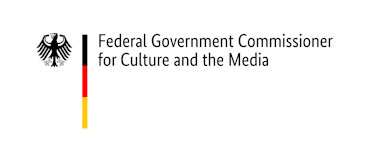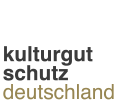Artists and creative minds
The German Act on the Protection of Cultural Property (Kulturgutschutzgesetz, KGSG) contains many provisions that provide long-term support for artists and creative minds and their works.
Some of these provisions are of particular interest for plastic and graphic artists, including the special provisions aimed at preventing the exodus of cultural property. Pursuant to Section 7 (1) sentence 2 KGSG, works by living originators or creators may be entered into a directory of nationally valuable cultural property only with their approval. An overview of entries relating to specific cultural objects can be found in the directories of nationally valuable cultural property maintained by the Länder.
The special status assigned by the Act on the Protection of Cultural Property to collections held by publicly funded institutions provides additional opportunities for initiating return proceedings if objects have been unlawfully removed to another country (e.g. following a theft). Pursuant to Section 6 (2) KGSG, artists and creative minds who loan their works to such an institution can request protection of this kind for the duration of the loan. Special rules also apply in relation to export controls pursuant to Section 24 KGSG or the provisions of EU law (Regulation (EC) No 116/2009 on the export of cultural goods): cultural goods that belong to their originator or creator are exempt from the requirement for an export licence when they are exported abroad.
In the majority of cases, artists and creative minds are keen to sell their works, particularly if they wish to earn a living by doing so. As market participants, under certain circumstances, they must therefore also comply with the due diligence requirements that apply in connection with the sale of cultural objects, but only within tightly constrained limits. The Act on the Protection of Cultural Property provides exemptions for cultural objects placed on the commercial market by or on behalf of their creator or originator and cultural objects acquired directly from the creator or originator and then placed on the market; other than the due diligence requirements that apply to anyone who sells cultural property, the individuals placing these objects on the market need only document the name and address of the seller, deliverer, acquirer or ordering party and provide a description and illustration that can be used to establish the identity of the cultural object. Further information can be found in the section on Due diligence requirements.
Conversely, a group of other provisions are of particular interest for musicians, including those regulating whether and for what reason export licences are required, e.g. in the case of concert tours abroad. Section 26 KGSG on the “specific open licence” grants special benefits to musicians wishing to export their musical instruments in such cases. Further information can be found in the section on Information for musicians.


